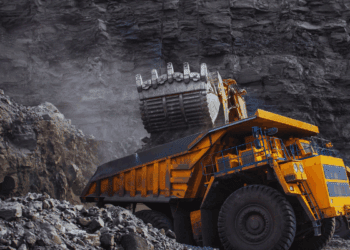March 16, 2012 – In today’s Vancouver Sun, MLI’s Brian Lee Crowley and Jason Clemens write about the environmental, economic and legal impact of banning oil tankers on the West Coast. According to Crowley and Clemens, “The loss of jobs and income to Canadians and conflict with the U.S. that would be occasioned by a ban are totally disproportionate to the tiny risk responsible oil tanker traffic poses.” The full column is copied below and also appeared in the Calgary Herald. It is based on MLI’s recently released report, Making oil and water mix: Oil tanker traffic on Canada’s West Coast, by Philip John, Roland Priddle and Robert Hage.
In addition to this coverage, Lorne Gunter highlighted the report in a column he wrote for the National Post today. Click here to read the full piece.
The record favours allowing oil tanker traffic
By Brian Lee Crowley and Jason Clemens, Vancouver Sun, March 16, 2012
American political game-playing on the Keystone XL pipeline has rightly shifted attention to Enbridge’s proposed Northern Gateway pipeline to the west coast. But the Pacific solution to getting Canada’s oilsands production to market is also subject to great uncertainty, including uncertainties that are receiving little attention.
Northern Gateway faces two key vulnerabilities. First is the uncertainty of politicized regulatory hearings that will determine if and how the pipeline is built. Thousands have signed up to give “evidence,” mostly their feelings about the oilsands, internal combustion engines, the sacredness of pristine environments and the evils of oil companies. Layered on top is the vocal opposition of numerous aboriginal organizations, mostly positioning themselves, rightly, to get a share of the jobs and income to come.
Little attention, however, is being focused on the other vulnerability, one the environmental movement already has in its sights: whether oil tankers will be allowed to ply their trade in B.C. coastal waters. A pipeline that cannot disgorge the oil into ships and send it on its way to Asia will not be built and there would be little point in expanding the existing pipeline to Vancouver or to consider shipment by rail either.
Opponents are already at work. A tanker ban would be largely federal jurisdiction, so opposition MPs from B.C. have repeatedly tabled private member’s bills to enact a ban. There is one before the Commons today.
Under the current federal government, such legislation stands little chance, but that could change. Governments come and go, and approval for Northern Gateway will almost certainly take longer than the life of any Parliament.
Moreover, there is a serious risk of the environmentalists winning a weighty political ally: the B.C. government. Premier Christy Clark has let it be known that the issue most often raised on the doorstep in her byelection campaign was the desirability of a tanker ban. The premier remains cautiously pro-development, but the New Democrats are well ahead in the polls for an election that is 15 months away. An NDP win would almost certainly create a less welcoming environment for tanker traffic. Given the various provincial approvals that a pipeline and allied port and other infrastructure developments may require, B.C.’s opposition would be a major obstacle.
That makes it imperative to examine the arguments in favour of a ban. The Macdonald-Laurier Institute thus commissioned three papers by leading experts examining the environmental, economic and legal arguments. The conclusion? There is little reason to support banning oil tanker traffic and many good reasons for opposing it.
Take the environmental argument, for example. This is surely the one that will swing the most weight with Canadians, especially in B.C. The idea of a major spill in the beautiful waterways off the coast is indeed frightening. How likely is it, though?
Canada has a lot of experience with managing oil tanker traffic successfully in sensitive waterways. The Irving oil refinery, for example, brings virtually its entire feedstock in by tanker through the Bay of Fundy, a stunningly beautiful body of water. No talk of tanker bans there. How about the St. Lawrence River, the heartland of ecologically conscious Quebec? Oil and petroleum products are constantly shipped there in large quantities, including to feed major oil refineries near Quebec City and Montreal. Newfoundland’s burgeoning offshore oil industry only exists thanks to tankers.
Canada’s record of managing this traffic safely is peerless. The number of maritime oil spills over the last 30 years declined from a high of 18 in the 1980s to six during the 1990s, to none in the 2000s. Only the Netherlands and Sweden can match Canada’s record in the last decade, a record due not to chance, but to a tremendous effort to ensure that economic activity in ecologically sensitive areas is carried out responsibly under the most demanding and stringent conditions. Moreover, shipping produces the lowest greenhouse gas emissions of all modes of transport.
The economic consequences of a ban would be huge. According to energy economist Roland Priddle, who used the most conservative assumptions, over 30 years Northern Gateway would see Canada’s GNP increase by $270 billion, labour incomes go up by $48 billion and government revenues rise by $81 billion, while 558,000 person-years of work would be created.
Finally, a tanker ban would inevitably fall afoul of competing Canadian and United States jurisdictional claims over west coast waters, not least because a number of Alaskan communities get their oil from tankers and can only be reached through the disputed waters.
The loss of jobs and income to Canadians and conflict with the U.S. that would be occasioned by a ban are totally disproportionate to the tiny risk responsible oil tanker traffic poses.
Brian Lee Crowley, managing director of the Macdonald-Laurier Institute, and Jason Clemens, director of research, are co-editors of a recent publication, Making Oil and Water Mix: Oil Tanker Traffic on Canada’s West Coast.




